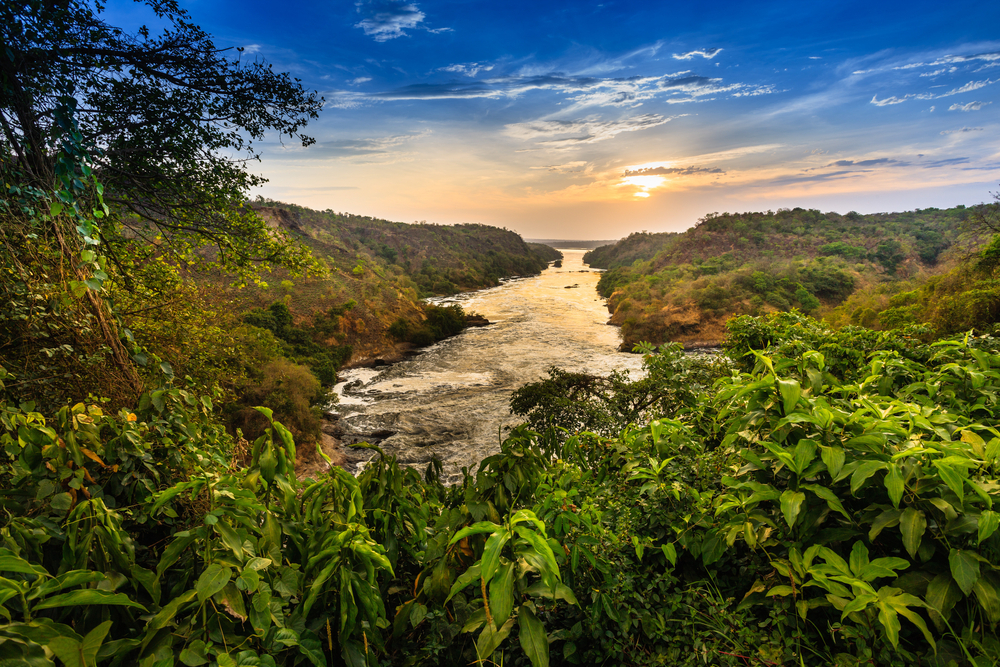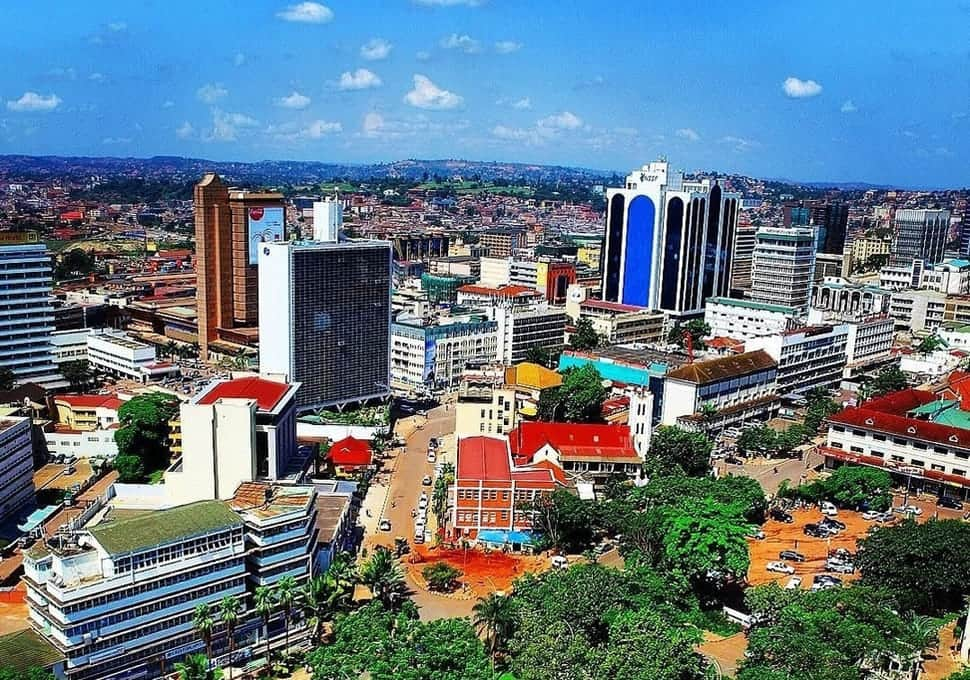Isn't it fascinating how a single country can encapsulate such a diverse tapestry of experiences, from ancient kingdoms to modern challenges? Uganda, a landlocked nation in East Africa, offers precisely this, a compelling narrative woven through its rich history, diverse culture, and stunning natural beauty.
Uganda, officially the Republic of Uganda, is a landlocked country nestled in the heart of East Africa. Its borders are shared with Tanzania to the south, Rwanda to the southwest, the Democratic Republic of Congo to the west, South Sudan to the north, and Kenya to the east. This strategic location has historically made it a crossroads of cultures and a land of captivating contrasts. It is a country of remarkable contrasts, where ancient traditions coexist with modern aspirations, and the vibrant energy of its people resonates throughout its diverse landscapes.
Let's take a deeper dive into the heart of Uganda. Below is a table to get insight into the essential data about Uganda:
| Feature | Details |
|---|---|
| Official Name | Republic of Uganda |
| Location | East Africa |
| Landlocked | Yes |
| Capital City | Kampala |
| Borders | Kenya, South Sudan, Democratic Republic of Congo, Rwanda, Tanzania |
| Climate | Equatorial, with diverse regional variations |
| Terrain | Plateau, mountains, valleys, lakes, and rivers |
| Major Lakes | Lake Victoria (partially), Lake Albert, Lake Kyoga |
| Major Rivers | Nile River (source), Victoria Nile |
| Currency | Ugandan Shilling (UGX) |
| Famous For | Diverse wildlife (mountain gorillas, chimpanzees), source of the Nile, lush landscapes ("Pearl of Africa") |
| National Holiday | Independence Day (October 9th) |
| Key Industries | Agriculture, tourism, manufacturing |
| Population (approx.) | 47 million (as of 2023) |
| Official Languages | English and Swahili |
For more detailed information, please visit the U.S. Department of State.
The history of Uganda is a complex and captivating story, marked by both triumphs and tribulations. Before the arrival of European colonial powers, the region was home to several powerful kingdoms, each with its own distinct culture and political structure. The Kingdom of Buganda, in particular, rose to prominence, exerting considerable influence over a large area. The empire of Kitara, covering a large portion of the Great Lakes area, also played a crucial role. These kingdoms demonstrated sophisticated social and political organization. The arrival of new groups who brought and developed ironworking skills and new ideas of social and political organization.
The late 19th century saw the encroachment of European colonial powers, with Uganda eventually becoming a British protectorate. This period brought significant changes, including the imposition of colonial rule, the introduction of new economic systems, and the reshaping of social structures. The borders of Uganda, as defined by the colonial powers, were drawn in an arbitrary manner, encompassing diverse societies, including the relatively centralized Bantu peoples of the south and the more decentralized Nilotic groups. This has had lasting implications on the country's political landscape.
Independence in 1962 marked a new chapter, but the path to stability was fraught with challenges. Political conflicts, military coups, and periods of civil unrest marred the early years of independence. The country experienced a devastating AIDS crisis, which had a profound impact on its population and economy. The government attempted to limit Rwandan influence by restricting those who lacked Ugandan citizenship to refugee camps and expelling some to Tanzania.
Despite these challenges, Uganda has shown resilience and determination in its quest for progress. Economic growth, driven by agriculture, tourism, and other sectors, has contributed to improved living standards. The country is actively working to address its past, reconcile its differences, and build a more inclusive and prosperous future. The republican constitution adopted in 1967 abolished the monarchies and assigned ultimate political power to an elected president.
Geographically, Uganda is a land of stunning natural beauty. Its diverse landscape includes plateaus, mountains, valleys, and numerous lakes and rivers. Lake Victoria, the second-largest freshwater lake in the world, forms a significant part of the country's southern border. The source of the Nile River, the second-longest river in the world, is located in Uganda, adding to its allure. Once described as the most spectacular thing to happen to the Nile along its 6700km length, the 50m wide Victoria Nile is squeezed here through a 6m gap.
Uganda's climate is primarily equatorial, offering a variety of ecosystems, the country is known as the "Pearl of Africa". The country is home to one of the most diverse and concentrated ranges of African fauna, including the highly endangered mountain gorilla and the endangered common chimpanzee. National parks and reserves provide crucial habitats for these iconic species and offer opportunities for ecotourism, further boosting the country's economy.
Uganda's capital city, Kampala, is a vibrant and bustling hub of activity. It is a city of contrasts, where modern skyscrapers stand alongside historic landmarks and bustling markets. Entebbe, a pleasant town situated on the shores of Lake Victoria, offers a more relaxed atmosphere. It is home to the international airport and serves as a gateway to the country's many attractions. Explore the vibrant urban centers and the natural landscapes that make Uganda a unique travel destination. From lively cities filled with cultural heritage sites to vast national parks teeming with wildlife, Uganda offers a diverse array of experiences for every traveler.
Uganda's culture is rich and diverse, with a multitude of ethnic groups, each with its own unique traditions, languages, and customs. Music, dance, and art are integral parts of Ugandan life, and traditional ceremonies and festivals provide opportunities to celebrate the country's rich heritage. The Bantu languages and traditions, particularly in the south, contrast with the Nilotic influences in the north, creating a fascinating cultural blend. Der choronym "Uganda" refers to the kingdom of Buganda, which includes the southeastern part of the country. Buganda is mainly inhabited by Bantu people, whose Bantu languages precede a root word (here Ganda) with a nominal class prefix, which indicates the type of word meant.
The economy of Uganda is primarily based on agriculture, which employs a significant portion of the population. Coffee, tea, and bananas are major export crops. Tourism is a growing sector, attracting visitors who come to experience the country's natural beauty and wildlife. The government is actively working to diversify the economy, promote industrialization, and attract foreign investment.
Uganda faces several national issues, including poverty, inequality, and healthcare challenges. The country is grappling with high fertility rates, estimated at 5.97 by a World Bank 2014 report. An estimated 1.4 million babies are born every year with few of them registered, and even fewer issued with birth certificates. Efforts are underway to improve healthcare access, address social inequalities, and promote sustainable development. About mobile vital records system.
The government of Uganda is a republic, with an elected president as head of state. The president is aided by a ministerial cabinet drawn, in the British tradition. The country has a multi-party political system, and efforts are being made to strengthen democratic institutions and promote good governance. When the national unity platform (NUP) erupted onto Ugandas political landscape, it ignited a wave of hope: a youthful, idealistic force that promised to shatter old patterns of corruption, silence, and autocracy.
Uganda's location in East Africa has significant implications for its international relations. It is a member of the East African Community (EAC) and plays an active role in regional cooperation and integration. Uganda also engages in international diplomacy and participates in various global initiatives. Uganda's borders, drawn in an artificial and arbitrary manner in the late 19th century by colonial powers, encompass two essentially different types of societies: the relatively centralized Bantu peoples of the south and the more decentralized nilotic.
In conclusion, Uganda presents a multifaceted and dynamic portrait. It is a land of captivating beauty, rich history, and diverse culture, a country that is continuously evolving. From the ancient kingdoms that shaped its past to the challenges it faces today, Uganda offers a unique and compelling narrative. Exploring its diverse landscapes, from its vibrant cities to its serene national parks, provides experiences that are unforgettable. The journey through Uganda unveils a world of beauty, resilience, and the enduring spirit of its people.



Detail Author:
- Name : Leif Schuster
- Username : tyler.walter
- Email : huels.milford@hartmann.com
- Birthdate : 1977-01-15
- Address : 46986 Nora Course Suite 333 Lake Reese, MI 50329-7230
- Phone : +1-626-431-6554
- Company : Pacocha Group
- Job : Cost Estimator
- Bio : Dolorem illum ut sed harum repudiandae explicabo quia. Quis laborum corrupti nesciunt. Sint repellendus ipsa ut libero. Sit vel quis nobis. Quis odit veritatis saepe sit.
Socials
linkedin:
- url : https://linkedin.com/in/colew
- username : colew
- bio : Tempore omnis sunt similique.
- followers : 6649
- following : 2823
instagram:
- url : https://instagram.com/willycole
- username : willycole
- bio : Officiis perspiciatis ipsa ut ut. Eligendi maxime assumenda corrupti in ea sint.
- followers : 5459
- following : 2084
twitter:
- url : https://twitter.com/willy2277
- username : willy2277
- bio : Aut et veritatis et aut. Error ipsum eaque nobis et. Omnis nostrum libero quis similique repellat. Quas quis accusamus beatae quos cupiditate.
- followers : 1240
- following : 457
facebook:
- url : https://facebook.com/willy_cole
- username : willy_cole
- bio : Pariatur tenetur molestiae neque voluptate vitae.
- followers : 2732
- following : 1216
tiktok:
- url : https://tiktok.com/@willycole
- username : willycole
- bio : Tenetur ut velit sed voluptate.
- followers : 569
- following : 92